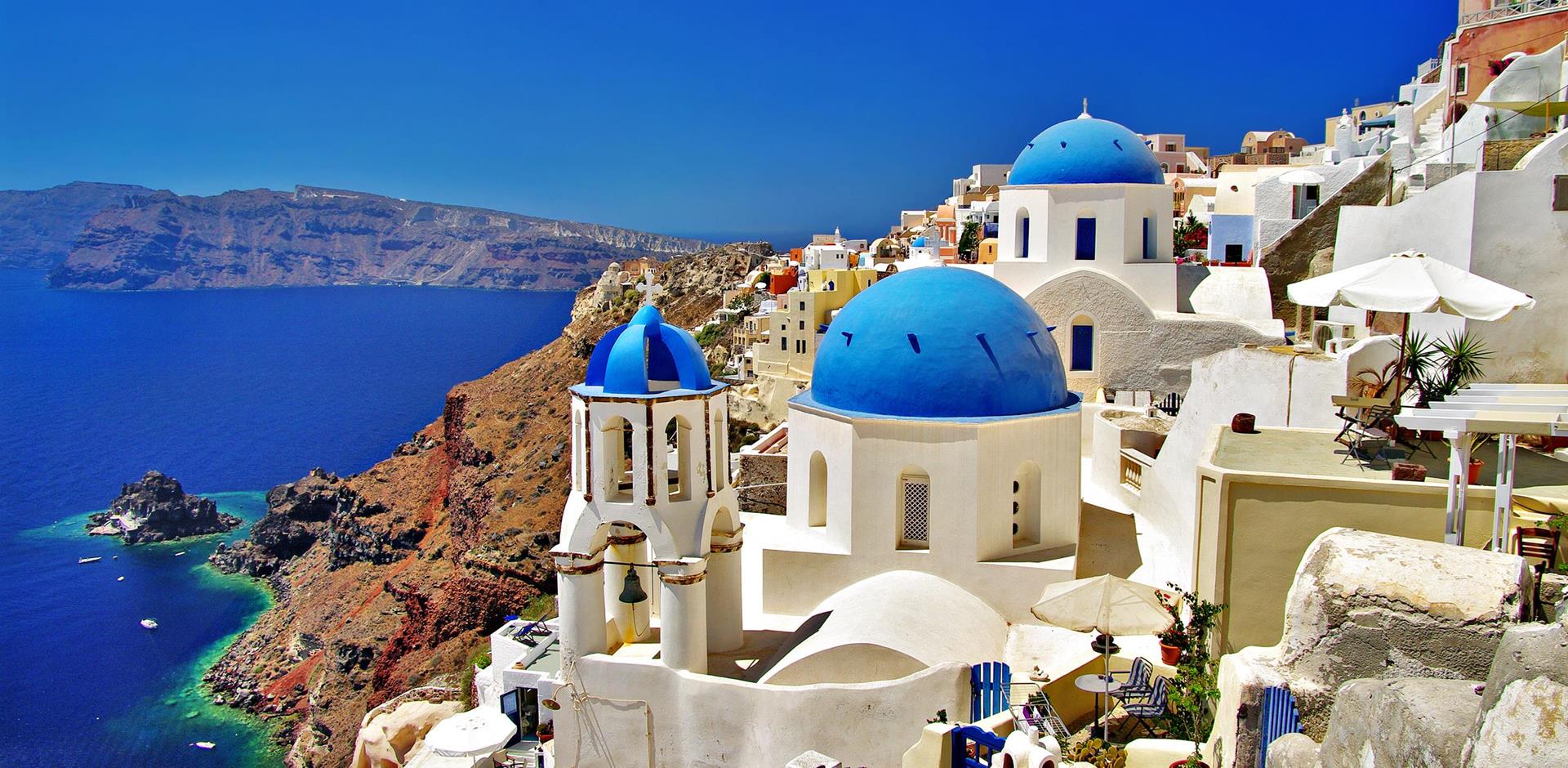About Greece
History and beauty have always gone hand in hand in Greece. Its capital, Athens, is no exception. At the heart of the civilized world, much of Ancient Greece’s exceptional creativity in thinking, writing and theatre began life here. This famous city is dominated by the crumbling stone Acropolis and the ruins of the Parthenon. They stand watch as they have done for over 2,000 years.
On the Peloponnese peninsula, discover the charms of Corinth, home to the Odeon and the Temples of Apollo and Octavia. Not far from here you’ll also find the Ancient Greek site of Olympia. The original Olympic Games took place here and the site includes the grand Temple of Zeus. The Palaestra was an ancient athletic training centre, but you won’t find any tennis courts or swimming pools here. You’ll have to save that honour for your villa!
Greece’s glittering islands offer a heritage steeped in mythology where landscapes spawn fantastic stories. And what truly mythical landscapes there are: crystal blue seas crash into horseshoe bays that are lined with soft white-sand beaches. With bright, vibrant colours the Greek islands make the rest of the world seem grey by comparison. Stay at one our of luxury villas in Greece’s largest island of Crete, or find a secluded getaway on the beautiful islands of Santorini or Mykonos. Offering a diverse range of places to experience how relaxing life can be, the only Olympic effort awaiting you is lifting that glass to your lips!
Time Zone
Greece operates on GMT + 2 hours.
Language
Modern Greek (as opposed to Ancient) is the national language of Greece. Vernacular speech contains many borrowings from foreign languages, including Italian, French, Turkish and English, so you may hear some familiar words in everyday speech. “Tourist Police” whose lapel badges picture a Union Jack or American flag speak English. In Greece, people whose work brings them into contact with visitors from overseas are generally excellent English speakers.
Currency
The Euro, divided into 100 Cents.
Money Matters
Travellers cheques can easily be converted into Euros; some larger stores will take them as payment. Smaller denominations are preferred. Major credit cards are widely accepted (though American Express less so) and ATM access is widespread.
Tipping
Like most European countries, tipping in restaurants is common, with a recommended 10% on a discretionary basis according to service. Check that a service charge has not been added to your bill before deciding whether to tip. Taxi drivers do not usually expect a tip but it is common practice and considered polite to round up taxi fares.
Weather
Greece enjoys a typically Mediterranean climate, with hot, dry summers and cool, occasionally wet winters. Summer temperatures can reach the upwards of 90 degrees Fahrenheit and sun protection in the form of sun cream, a sun hat and lightweight clothing is recommended.
Clothing
Style is fairly casual throughout Greece though in more rural areas and during Easter more conservative dress may be observed, for example covered shoulders. Cathedrals, churches and other religious sites require conservative dress. Both sexes should cover their arms, legs and shoulders. Cotton and other light fabrics are comfortable choices for summertime as the heat can be extreme during summer months. You are advised to take lightweight light coloured items, including a sun hat to protect your skin from the affects of sun damage. Spring and autumn temperatures dictate light to medium-weight clothing selections and in winter you will need a pullover and a coat. When dining at better restaurants and for any special occasion during your journey, dress is more formal. For gentlemen, a “jacket and tie” standard is appropriate, with an equivalent standard of eveningwear for ladies. Bring comfortable walking shoes with low or no heels.
Health
For up to date information on latest health and vaccination recommendations, please contact your doctor.
Electricity
Electrical service is supplied at 220 volts/50 hertz.

